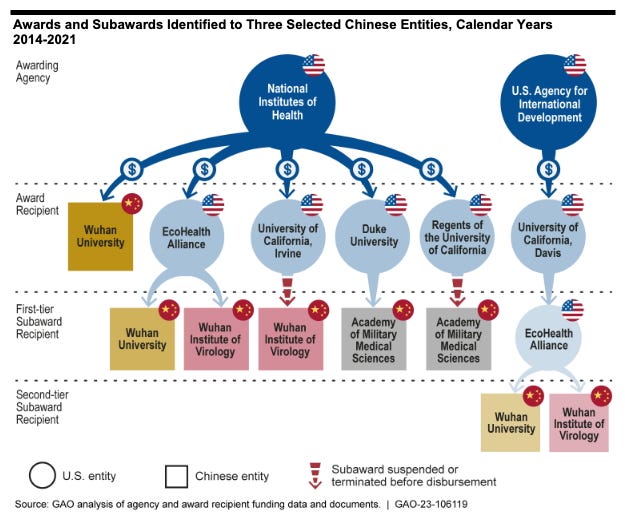The “China” Argument Against Trump’s Spending Cuts Is Bogus
The anti-Trump left are all suddenly hard-line China hawks?

Whatever merits—or flaws—there may be around President Trump’s plans to cut back spending on the U.S. Agency for International Development and reduce research grant “indirect cost” overhead spending from the National Institutes of Health, a little-noticed and somewhat comical side effect is that suddenly, the anti-Trump left are all hard-line China hawks.
Ben Rhodes, who as President Obama’s deputy national security adviser championed an Iran nuclear deal that allowed Iranian energy to fuel Chinese growth, takes to the New York Times opinion pages to oppose the AID cuts on the grounds that they’d create a vacuum for China to fill. “The Elon Musk-supervised shuttering of U.S.A.I.D. is something that is already happening, with tangible consequences not only for the people around the world who depend on the agency but also for Americans who expect their government to prevent the spread of terrorism, disease and the global influence of the Chinese Communist Party,” Rhodes writes. “Stripped of U.S.A.I.D. funding, struggling under the weight of tariffs, nations including U.S. allies may now look to China as a more predictable source of trade and investment.”
The rest of the Sunday Times opinion section is full of similar complaints about how Trump is supposedly good for China. Michelle Goldberg, writing about Trump’s Gaza Riviera plan: “He has created a de facto justification not only for Israeli expansionism, but for Chinese and Russian expansionism as well.” Ross Douthat (okay, he’s a conservative): “So long as America remains a global power with an imperial footprint, we should wish to appear more benevolent than our Chinese and Russian rivals.” For a moment, I wasn’t sure if it was the New York Times opinion section or some arch-anticommunist Cold War-era Republican-leaning publication like Human Events.
Academic medicine has come down with a similar concern: Jeremy Faust, MD of the Inside Medicine Substack writes, “I also asked my former Harvard colleague Professor Edward Boyer (now at The Ohio State University) for a quick reaction. He put it bluntly: ‘China just became the leader in biomedical research.’”
The newfound concern about Chinese influence is touching, but the timing is suspicious, raising concerns about whether this crowd is sincerely worried about China, or is simply conveniently seizing on it as an argument to preserve spending that it doesn’t want cut.
Where were these people when the USAID and NIH money was pouring into the Wuhan Institute of Virology? Where were they when Larry Summers and Bill Clinton were welcoming China into the World Trade Organization with tariff reductions that made it much harder for American manufacturers to compete with Chinese factories where independent labor unions are outlawed?
Where were they when the chairman of the Harvard Chemistry and Chemical Biology Department, Charles Lieber, was sentenced on federal criminal charges “for lying to federal authorities about his affiliation with People’s Republic of China’s Thousand Talents Program and the Wuhan University of Technology (WUT) in Wuhan, China, as well as failing to report income he received from WUT”?
Where were they when news emerged that Chinese engineers were captured inside Gaza’s tunnels?
A serious discussion about the best long-term strategy to counter or roll back China’s global influence is long overdue. I’ve got my own thoughts. But when those who have been mostly absent from the fight against Chinese influence show up suddenly to argue that some government expenditure is absolutely necessary to defend against Beijing, it seems suspicious. Especially when the spending has been ongoing and has coincided with China’s rise.
How does it help America’s standing against China for the federal government to be spending $2 trillion more annually than it is taking in, a deficit funded in part by borrowing money from China and passing the obligation on to future generations of Americans? The Biden-Harris solution to this was a $7 trillion tax increase, but the voters chose an alternative approach.
It hasn’t attracted a lot of attention yet, but on February 7, 2025, Trump posted to social media, “BALANCED BUDGET!!! DJT.”
If Trump succeeds in balancing the federal budget—a feat not achieved since President Clinton and Speaker Gingrich did it from 1998 to 2001—the positive effects for America in general, and on the U.S.-China competition in particular, could be huge. They might even potentially outweigh anything done by USAID or with the incremental difference between the current indirect cost rates on NIH grants and the reduced rates that the Trump administration is proposing.


